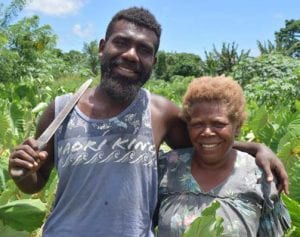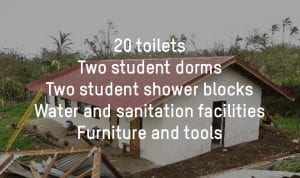The strongest storm ever recorded in the Atlantic has caused widespread damage in the already vulnerable islands of the Caribbean, with as many as three million people expected to be affected by the disaster in Haiti alone.
Oxfam staff on the ground in Haiti have reported damage to water and sanitation facilities across the country, increasing the risk of the spread of diseases like cholera.
The Haitian government has prepared 793 temporary shelters across seven departments and, together with Oxfam and other agencies, is trying to move as many people as possible away from the coast.
Oxfam’s team is assisting with the evacuation in Cap Haitien – Haiti’s second largest city, with a population of 280,000 – as people in coastal areas flee inland to schools and public buildings in preparation for the worst of Hurricane Irma today and tomorrow.
Oxfam spokesperson Tania Escamilla said although the mood was calm, the potential for destruction was concerning with so many people still recovering from last year’s Hurricane Matthew.
“I get the sense that people here are used to hurricanes and no one seems frantically scared, but I’ve heard from many that some areas of the country haven’t even fully recovered from Hurricane Matthew last year – and now they’re facing this,” Escamilla said.
“We fear that half-a-million people could be affected even in the best-case scenario – or as many as 3 million in the worst”.
The Oxfam team in Cap Haitien is already preparing to mount emergency repairs to water and sanitation facilities, under the DINEPA division of the Ministry of Public Works. “My engineering and humanitarian colleagues tell me that although cholera cases are considered low and ‘under control’, the disease remains their biggest concern should the storm wreck infrastructure,” she said.
Escamilla said Cap Haitien has a combination of well-established houses with slums in some areas including in the coast. “The damage that could likely happen from the winds and storm surge would be devastating for a large part of this city and surrounding towns.”
“While many are moving, there are quite a few people however who have decided not to evacuate but to stay put instead, fearing to lose their belongings and home,” she said last night.
Oxfam New Zealand humanitarian manager Clive Phillips said Haiti’s geography and environment – and poverty – made people extremely vulnerable to further devastation from flooding and landslides. “This is a region that is very susceptible to disasters like this, but the scale of Irma cannot be understated. Alongside the high levels of poverty in the country, the potential for catastrophe in this already vulnerable region is high.
“Oxfam will be keeping a close eye on the situation and we are ready to respond with emergency aid immediately after the storm passes.”
In Haiti, Oxfam has moved emergency aid into five locations across the country, three of which are in northern areas that will be the most exposed to the hurricane’s impact. Already four teams, made up of five or more specialists in emergencies, have been mobilised in Cap-Haitien, Ouanaminthe, Anse-Rouge and Gonaives. Oxfam also has nine cholera response teams now prepared to deploy.
Oxfam teams in Dominican Republic and Cuba are also preparing to respond. Oxfam has worked in the Caribbean region for over 30 years and has expert teams in providing safe water and carrying out sanitation and hygiene work for those people most vulnerable after an emergency strikes.
Donations to Oxfam’s Hurricane Irma appeal can be made online at oxfam.org.nz/irma or by calling 0800 600 700.















